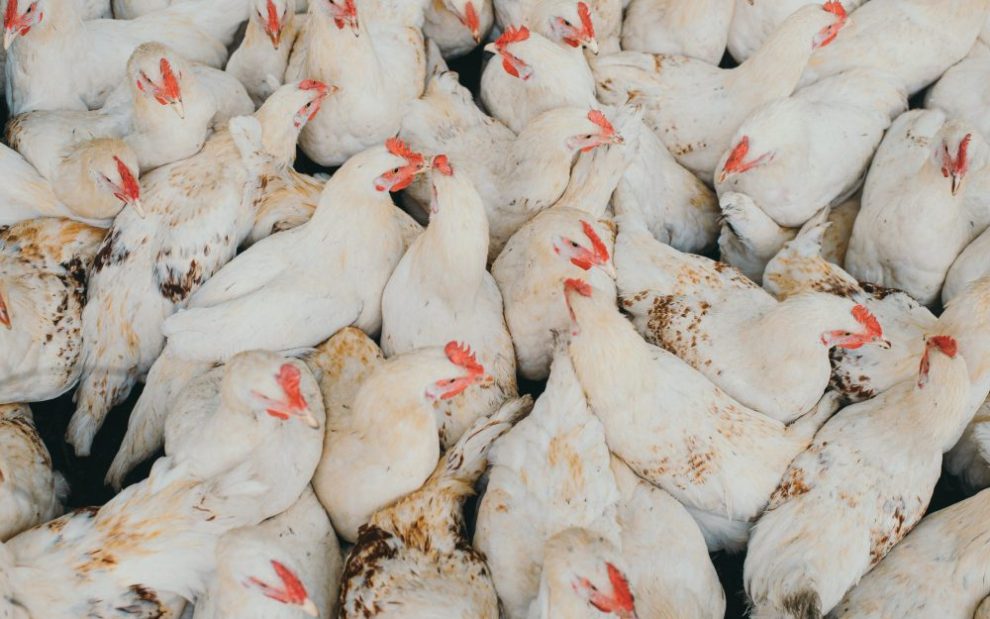Avian flu has been a menace to commercial farm managers since it first appeared in southern China in 1996. Since then, the virus has spread worldwide, and in February 2022, it reached the United States. The so-called “bird flu” can obliterate an entire commercial flock in a matter of days. The virus, “highly pathogenic avian influenza A,” or H5N1, as it is officially designated, has now begun to infect U.S. dairy cow herds.
From the beginning of the crisis, Centers for Disease Control and Prevention (CDC) officials have assured the public that it faces little risk from avian flu. There is, of course, a specific sub-group of the public that is acutely at risk: farmworkers exposed to the sick and dying animals and, just beyond them, a larger circle of vulnerability among their family members.
So far four U.S. farmworkers have become mildly ill because of H5N1. Officials acknowledge, however, that the U.S. contagion, now reaching dairy herds and avian sites across the country, has been poorly tracked, and many more farmworkers have likely been infected, meaning thousands of farmworkers and their families are at risk. There has been no widespread testing for H5N1, and no U.S. farmworkers have been vaccinated.
Farm laborers in the United States are often located at the bottom of statistical health performance data. Their isolation, poor working conditions, and diminished access to health care have historically led to poor health outcomes, and farm work itself remains among the most dangerous professions in American life. In 2022, the U.S. Bureau of Labor Statistics reported a rate of 19 work-related deaths per 100,000 workers in the agricultural industry. That is more than five times higher than the 3.7 per 100,000 rate experienced in all other U.S. employment sectors.
Farmworkers have been notoriously left behind as federal and state governments established safety standards that protect other workers. They are exempt from the modern regulatory system created by the National Labor Relations Act of 1935, and, in an era of rising temperatures, there are still no federal regulations governing farmworkers’ sun and heat exposure.
Forty to 50 percent of the nation’s 2.4 million farmworkers are undocumented, making them acutely vulnerable to unscrupulous farm owners or managers willing to save money by taking risks with safety. Many of these farmworkers are reluctant to seek help when they are ill, not only fearful of entanglements with government officials but bereft of sick-time benefits and health coverage that other U.S. workers can count on. That means in addition to improving work, safety, and health benefits for U.S. farmworkers, the nation must come to terms with its glaring hypocrisy around their legal status that may potentially contribute to a broader outbreak of H5N1.
Here are some numbers associated with H5N1 worth noting: More than half of people infected by older strains of H5N1 died, and between January 2022 through June 4, 2024, 29 human cases of a different strain of H5N1 have been reported from nine countries.
You can conclude that farmworkers deserve better treatment, health benefits, and working conditions because of a simple moral call to defend human dignity, or you can reach that conclusion purely out of self-interest. If the avian flu were to break out and find its way into the wider population, dairy and avian workers will be the likely route. In this instance, indifference to the plight of farmworkers and reluctance to make minor sensible investments in their safety and health contributes to a vast public health threat.
We all know firsthand what a global pandemic looks like. Are we ready to do what is required to protect farmworkers and, therefore, all of us?
This article also appears in the August 2024 issue of U.S. Catholic (Vol. 89, No. 8, page 42). Click here to subscribe to the magazine.
Image: Unsplash/Egor Myznik
















Add comment